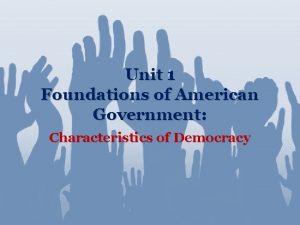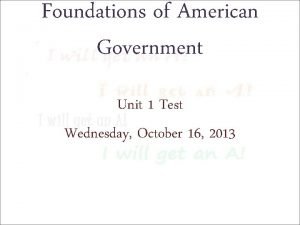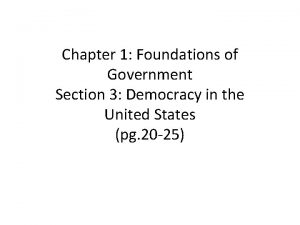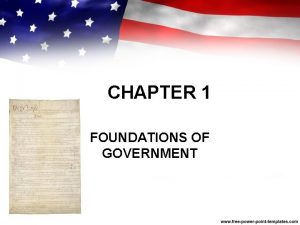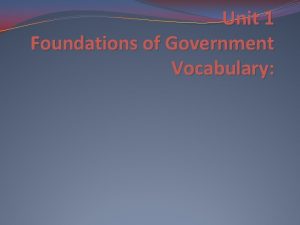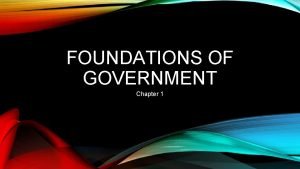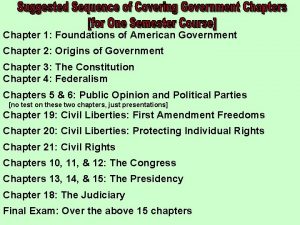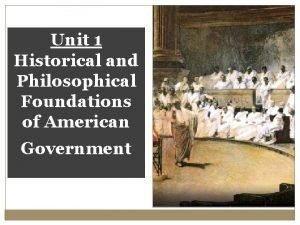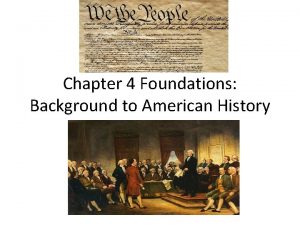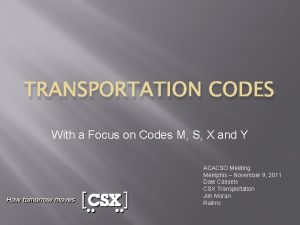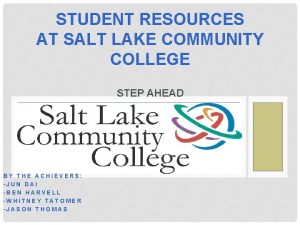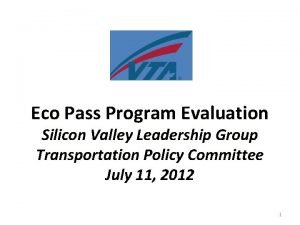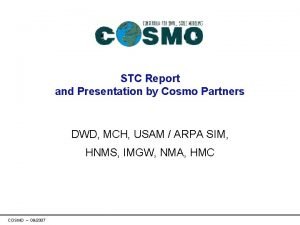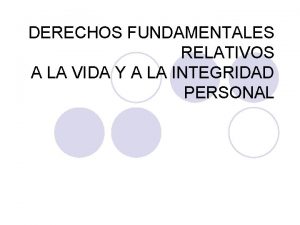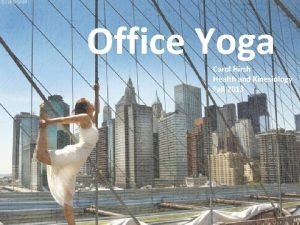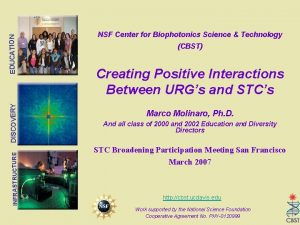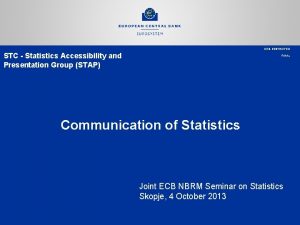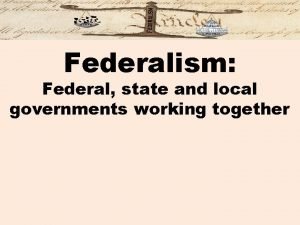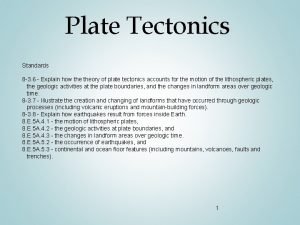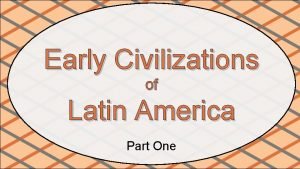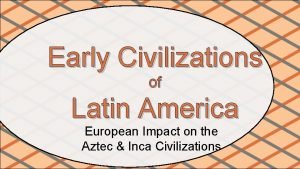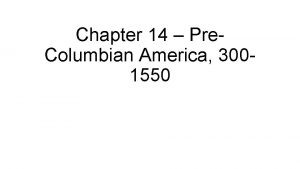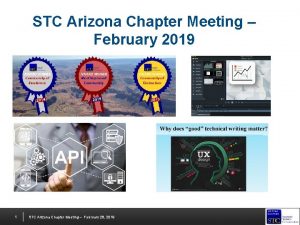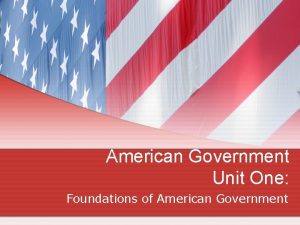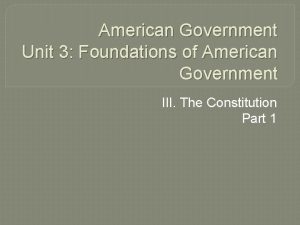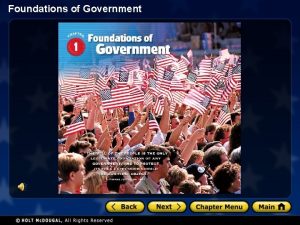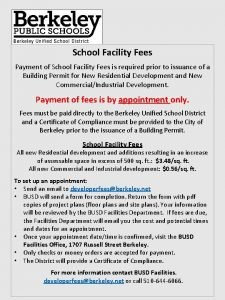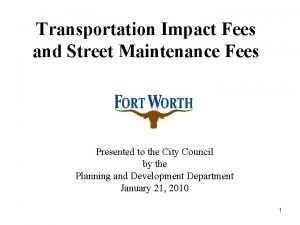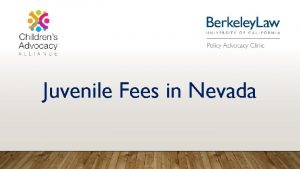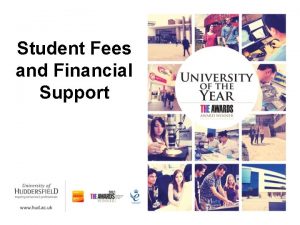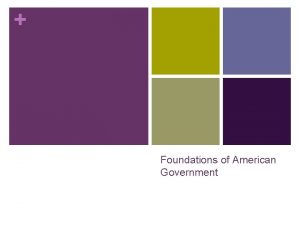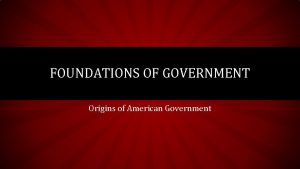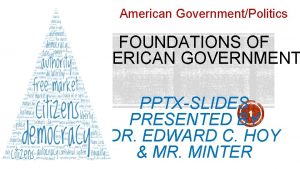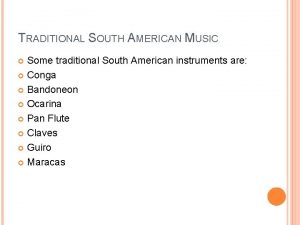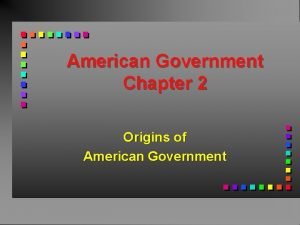Foundations of American Government Mr Fees STC South































- Slides: 31

Foundations of American Government Mr. Fees STC - South

Why break away from Britain n Colonists valued their rights as British subjects q n n Ironically their belief in these rights is what led to revolution After a long war with France (including the French and Indian war in North America) Britain was left with a large debt. Result: q Parliament felt that since the colonists benefited from British rule and protection that it was fair to tax them

Why Break away continued n Taxation with out representation q Stamp Act: 1765 tax on documents made of paper n n Included: newspapers, calendars, legal documents, and playing cards Colonists reaction included: q q Protesting and petitioning Boycotting British Goods Establishing groups to share information (Committees of Correspondence) Formed Sons of Liberty associations (radical patriot groups that frightened British officials)

Why break away continued n n Britain did repeal the Stamp Act However they continued to place new taxes on the colonists including one on tea q 1773 – The Boston Tea Party n n American workers at Boston Harbor refused to unload tea from British ships. Members of the Sons of Liberty, disguised as Native Americans boarded the ships and dumped the tea into the harbor

Why break away continued n In act of punishment, the British passed laws against Massachusetts, the Coercive Acts (The colonists called them the Intolerable Acts) q q The Boston Port Bill: closed Boston Harbor until tea was paid for The Massachusetts Government Act: shut down Massachusetts legislature (all power to governor) The Administration of Justice Act: any trial involving a British soldier or official held in Britain The Quartering Act: forced colonists to house British soldiers in their barns and homes

Colonial Reaction n The other colonies saw how Massachusetts were punished and feared that they would be next q First Continental Congress: Sept. 5, 1774 – representatives from 12 colonies met in Carpenter’s Hall in Philadelphia: n n n They made a list of complaints against Britain Proposed a boycott against British goods Agreed to meet again if complaints were not addressed

Colonial Reaction Continued n The Battle of Lexington and Concord April 19, 1775 began the American Revolution q n The colonists realized that they needed to address some issues like creating an army so they met again The Second Continental Congress: q q q May 10, 1776 met at the PA state house in Philadelphia (Independence Hall) Created an army (elected George Washington commander in chief) Decided to completely break away from Britain by signing the Declaration of Independence (Thomas Jefferson – author)

Forming a Confederation Americans understood that if they wanted to free themselves from Great Britain they needed to be united Confederation: n A group of individual state governments that band together for a common purpose. What was that purpose for the Americans?

The Confederation Congress March 1781 the 2 nd Continental Congress created: The Articles of Confederation which did the following: n Created a central government n Protected state sovereignty n set up a one-house legislature in which each state had one vote Powers of the Congress (very limited): n Controlled the Army n Addressed foreign relations (This government had little power and was very weak)

Articles of Confederation The Articles of Confederation were doomed to fail. Why? Six Major Problems 1. It had no taxation power 2. No national court 3. No currency standard 4. There was no executive 5. No Interstate commerce regulation 6. Each state had veto power over amendments

Problem 1: No taxation power Why no taxation? n Bad experience with British tax system Problem? n Government had no way to raise money to provide services n No money to fund army

Problem 2: Created no National Court Under the Articles, there was no central court Why? n The articles left conflict resolution to the States Problem? n Government had no authority to settle differences between States

Problem 3: No standard Currency Each State had its own money system Problem? : n It was very difficult for states to do business with each other The Rhode Island example: n Rhode Island is in debt n They keep printing money n No one wants their money because its worthless

Problem 4: No Executive The Articles did not provide a President or central authority figure Problem? n Congress passed laws but there was no one to enforce or carry them out

Problem 5: Interstate Commerce was not regulated The Congress has no power to regulate trade Problem? n The states compete with one another in ways that hurt them all n No common economic goals

Problem 6: State Veto Powers The rules of the Articles were to rigid Problem? n Congress could not pass laws without the approval of 9 states n The Articles could not be changed without the agreement of all 13 states

Articles Overcome Despite the weaknesses of the Articles, the Americans were able to win their independence Treaty of Paris (1783) n Peace agreement signed with Great Britain which ended the Revolutionary War n https: //www. youtube. com/watch? v=Hw. Wi 0 zd. F 7 wk

Post-War Problems Linger Independence did not put an end to the struggles of the U. S. Two Problems remain: 1. Debt – Financial Troubles 2. Public insecurity n People of America are afraid that their safety could not be protected

1. National Debt Why the debt? n Unable to collect taxes, Congress had to borrow money to pay for the War. n States tax imported goods – trade suffers n State governments tax their citizens heavily – this causes resentment as farmers lose jobs.

Shay’s Rebellion • Rebellion by 1, 200 farmers which served as a wake up call about the weakness of the Articles of Confederation Shay resists courts: • He should not be punished for a problem the State had created. Daniel Shays • Farmer who was deep in debt because of heavy state taxes. • Massachusetts courts threaten to take his farm as payment.

Results of Shays Rebellion Many realize the need for a stronger National Government 1787: Twelve states send delegates to Philadelphia to revise the Articles of Confederation. “I do not conceive we can exist long as a nation, without having lodged somewhere a power which will pervade the whole Union. ” - George Washington

Enlightenment Thinkers n The Enlightenment: a movement among philosophers in Europe that stressed: § § § n The rights of individuals Questioned older ideas Argued that people could use reason to solve problems Thomas Hobbes: believed there was a social contract or unspoken agreement between the government or ruler and the people. The people give up some freedoms in order to prevent lawlessness. n John Locke: believed all have natural rights including life, liberty, and the right to own property and that these can not be given up even in a social contract. That governments rule with the consent of the people.

Constitutional Influences n Before creating a new government our Founding Fathers had to look to the past to ensure our new system would work. n They looked at four different areas for advice q q Ancient Greece and Rome England Enlightenment thinkers Colonial Heritage

Ancient Greece and Rome n Ancient Greece – in the city state of Athens they developed the 1 st form of a democracy q n A direct democracy Ancient Rome – the Roman Empire was much too large to have a direct democracy but the people wanted a say in government q q q So a Representative Democracy was created Also know as a Republic They formed a Legislature – a group who discusses and passes laws (Roman Senate)

English Influence n Despite breaking away from Great Britain the colonists did like some of the ideals found in their government q n Citizens of Great Britain did receive many freedoms from their government and these being taken away is what lead to revolution. 4 English Influences q q The Magna Carta The English Bill of Rights England’s unwritten constitution The use of common law

English Influence n Magna Carta q q n In 1215 a group of nobles forced King John to sign the Magna Carta This document stated the King would respect certain rights like due process and trial by jury English Bill of Rights q A major Power struggle in the 1600’s between the King James II and Parliament this resulted in the following q q King James II was removed from the thrown His daughter Mary and her Husband William III take the crown (This proves that Parliament is stronger than the King) William III later signs the Bill of Rights which included § Trial by jury of ones peers, equal protection under the law § Free elections, fair trial, and eliminated cruel punishments

English Influence n Unwritten Constitution n It consists of: q n n n Formal Laws, Legal customs, Traditions We did not follow this We wrote ours down so we would not lose our rights and government could not overstep its boundaries British Common Law n n Law that was created throughout history by court decisions and law-related customs. Judges look to the legal tradition in deciding what is legal and what is illegal

Colonial Heritage n The Founders also got some useful ideas for setting up a government from the history of the colonies including influences from: q q q The Mayflower Compact The House of Burgesses English Colonial Governments

Colonial Heritage n Mayflower Compact used both of the following n n Direct democracy Using majority rules at public town meeting to make law (many consider the compact as America’s first written constitution) The House of Burgesses - Williamsburg n n n Created in the Virginian Colony so the Governor didn’t have to travel as much: Governor Sir George Yeardley It was a legislative house that met to discuss and debate issues, make laws, and pass taxes for the whole colony A republic system: each town or village had a representative

Colonial Heritage n By the time of the revolution, the colonies had these elements of government in place: q q q Charter: a document from the King establishing the colony Legislature: made laws, controlled money, and elected by the people Governor: an official who represented the King and had to approve and law created by the legislatures.

Colonial Heritage n Many of the colonies also provided three basic rights to their citizens including: q q q The Right to Vote (usually only male landowners) Freedom of Religion (Roger Williams created Rhode Island where one could worship freely) Freedom of the Press (John Peter Zenger arrested for libel, brought to trial and released because the statements he wrote were true)
 Unit 1 foundations of american government
Unit 1 foundations of american government Foundations of american government unit test
Foundations of american government unit test Foundations of government section 3
Foundations of government section 3 Chapter one foundations of government
Chapter one foundations of government Foundations of government vocabulary
Foundations of government vocabulary Chapter 1: foundations of government pdf
Chapter 1: foundations of government pdf Foundations of government (chapter 1 test form a)
Foundations of government (chapter 1 test form a) Philosophical foundations of the american revolution
Philosophical foundations of the american revolution Encounters and foundations to 1800
Encounters and foundations to 1800 Chapter 4 foundations background to american history
Chapter 4 foundations background to american history Stc jagent
Stc jagent Slcc disability resource center
Slcc disability resource center Sbb instruction in 8085
Sbb instruction in 8085 Igeat stc
Igeat stc Ufcd clc 7
Ufcd clc 7 Vta eco pass
Vta eco pass Gme stc
Gme stc Echometer oil and gas
Echometer oil and gas Stc 215/1994
Stc 215/1994 Stc magister
Stc magister Stc hd
Stc hd Stc kinesiology
Stc kinesiology Nsf biophotonics
Nsf biophotonics Stc statistics
Stc statistics Faa 337 form
Faa 337 form Old south vs new south streetcar named desire
Old south vs new south streetcar named desire National powers
National powers 7 lithospheric plates
7 lithospheric plates Early south american civilizations
Early south american civilizations Aztec south america
Aztec south america Cahokia apush definition
Cahokia apush definition Typology
Typology
